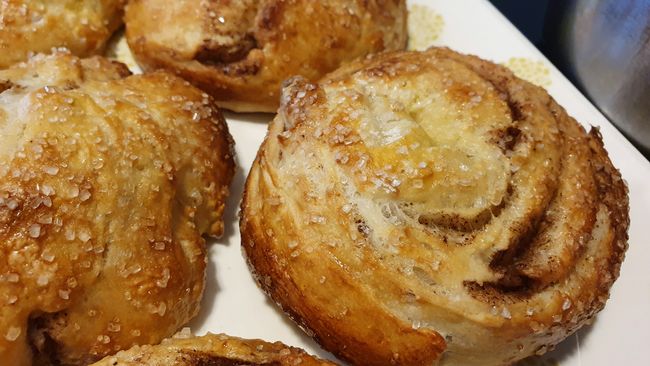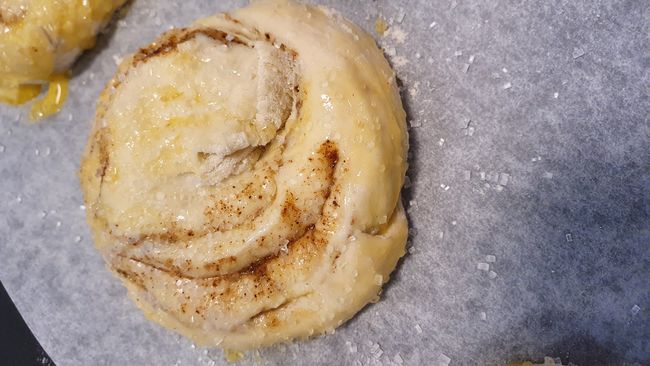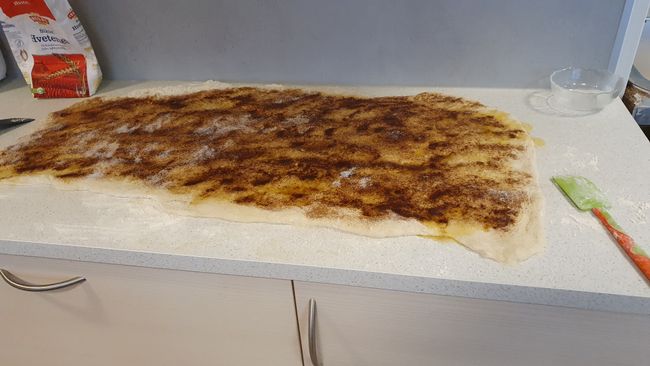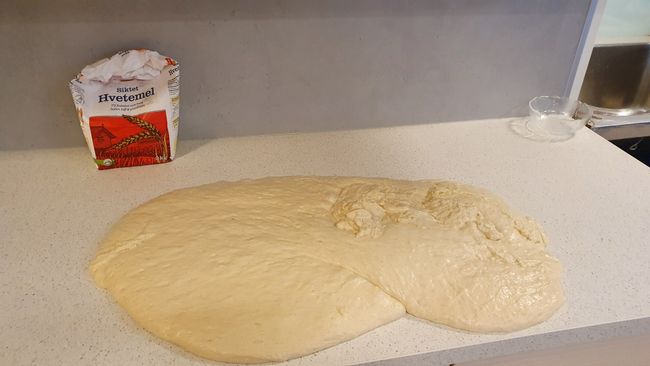Typically Norwegian: Cinnamon Buns
Gepubliseer: 28.02.2020
Teken in op Nuusbrief
Under the title 'Typically Norwegian', I would like to introduce you to some typical Norwegian things. The cinnamon bun takes the lead in this case.
The occasion today was my day in the canteen. I had decided to make cinnamon buns again and found out once again that Norwegians are crazy about them. Not a single cinnamon bun was cold when it was sold. As soon as they came out of the oven, the students were already there and the rest was eagerly waiting for the next batch.
This prompted me to research a little more about why cinnamon buns are so popular.
But first, a little excursion into the origin of the name:
Skillingsbollar translates to Schillings Buns. Schilling, which most people know as a currency, was also the case in Norway (approximately 1515 - 1875). A shilling (Norwegian: skilling) was then the smallest Norwegian coin. The similarity with the German currency is simple to explain: the Hanseatic League. Until the 18th century, the people of the Hanseatic League traded in (the Hanseatic city of) Bergen and voilà. The Skillingsbollar is called that way because it used to cost only one shilling. A little fun fact on the side: a shilling from back then corresponds to approximately 2.16 kr today, which is about 21 cents, quite cheap indeed.
You wouldn't be in Norway if both written languages didn't have a different name for it. In bokmål, the cinnamon bun is called skillingsboller, while in nynorsk it is called kanelbollar.
But enough of the chit-chat, here comes the recipe:
Ingredients:
· approx. 2.8 liters of flour (variable)
· 2 dl of sugar
· 1.5 liters of water
· 2 dl of oil
· 1 packet of yeast (in Norway, one packet contains 12 g and is sufficient for 1 kg of flour, in addition, there is a distinction between sweet and sour yeast)
As a little help: Norwegians measure everything in liters or deciliters (1 dl = 100 ml = 0.1 l)
You mix all the ingredients together to form a dough and let it rise. Then you put it on a floured surface and roll it out so that it is about half a centimeter thick.

As the next step, you spread melted butter, sugar, and plenty of cinnamon on the dough. Make sure everything reaches the edge.
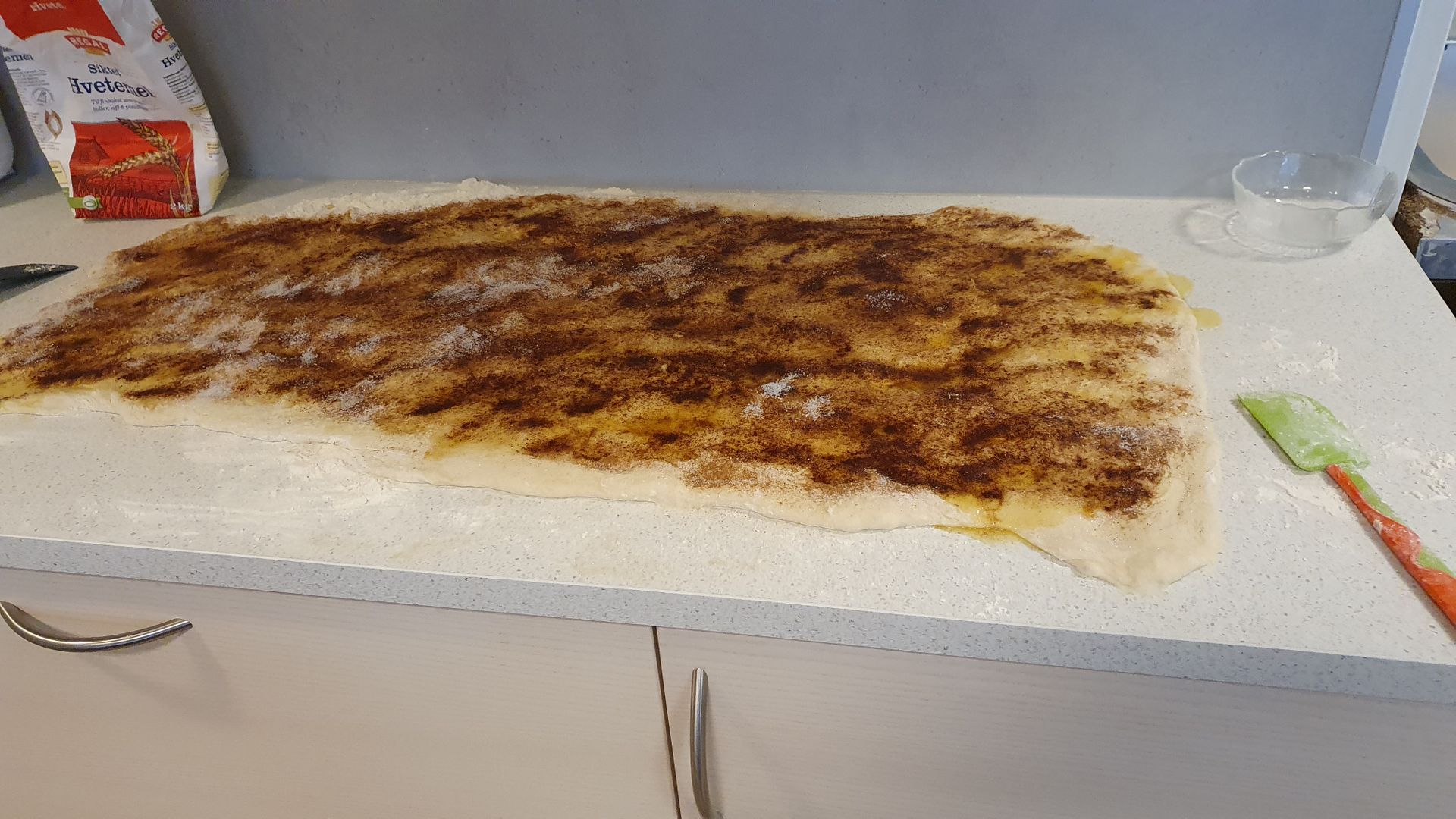
Next, roll up the dough and cut slices. These are placed on a baking sheet and brushed with egg. To make it really sweet, don't forget the pearl sugar.
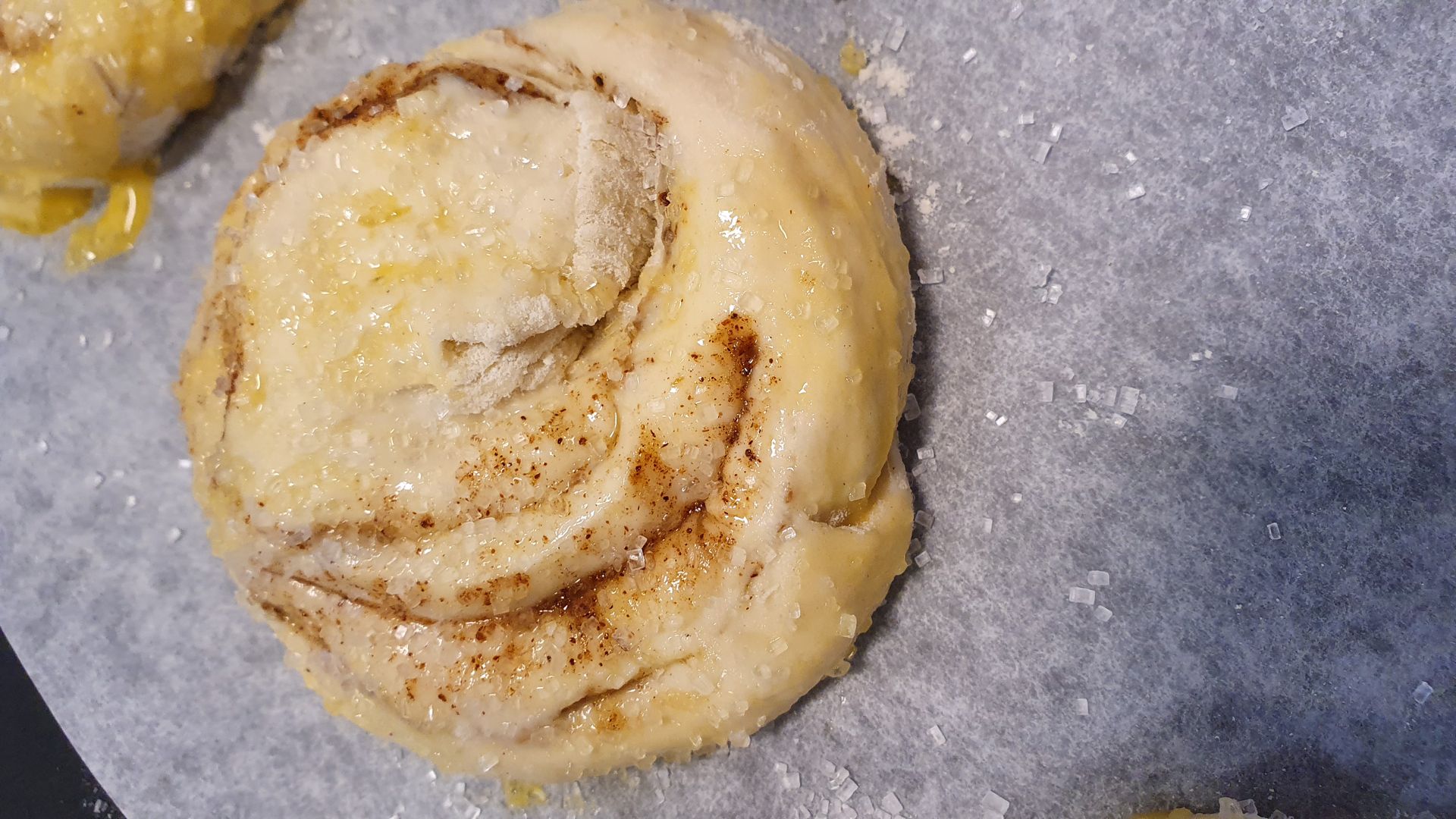
The cinnamon buns are baked at 210°C on the top or middle rack for about 15 minutes. In the end, you can dust them with powdered sugar and enjoy!

Cardamom is often added to the recipe, but I haven't experimented with that yet. I just took the recipe from the canteen chef.
I wish you success!
P.S.: I haven't figured out why Norwegians are so crazy about cinnamon yet. One approach could be that it promotes blood circulation. Since you move less in winter, it's cold, and everything is slower, you tend to get tired and have a bad mood. For this reason, cinnamon can be energizing and improve your mood.
Today fits in with that too: This week it started snowing, last night it was particularly heavy, so this morning there was about 25 cm of snow. Some buses arrived a little later and the mood was pretty bad. But at noon, the sun came out, which brightened up the general mood, but also caused the snow to melt, so now we have quite a lot of slush.


All information without guarantee.
Teken in op Nuusbrief
Antwoord


